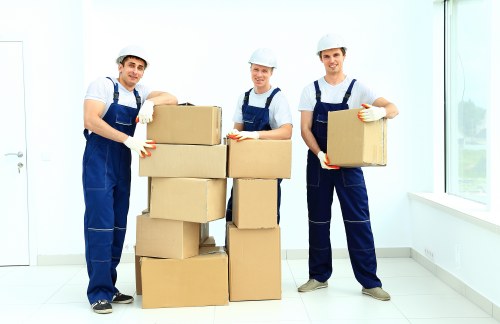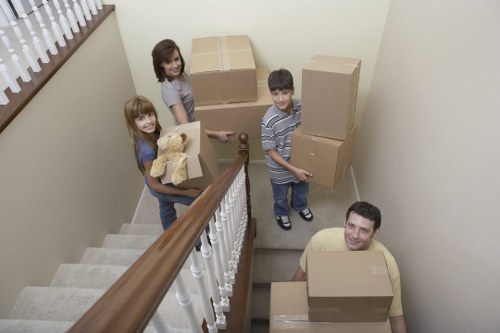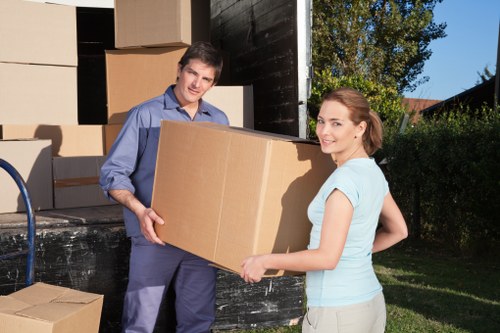Council Waste Collection Maidenhead: A Comprehensive Guide

Introduction to Council Waste Collection in Maidenhead
Managing waste efficiently is crucial for maintaining the cleanliness and sustainability of Maidenhead. The Council Waste Collection service plays a pivotal role in ensuring that residents dispose of their waste responsibly. This service not only helps in keeping the town tidy but also promotes recycling and environmental conservation.
In this guide, we will explore the various aspects of Council Waste Collection in Maidenhead, including collection schedules, types of waste collected, recycling initiatives, and tips for effective waste management. Whether you are a new resident or have lived in Maidenhead for years, this article aims to provide you with all the information you need.
Understanding how the waste collection system works can help you contribute to a cleaner and greener environment. Let’s delve into the details of how Maidenhead manages its waste collection.

Waste Collection Schedules and Services
Regular Waste Collection
The Council in Maidenhead offers regular waste collection services to its residents. Typically, waste is collected once a week, ensuring that bins do not overflow and the town remains clean. Residents are provided with designated bins for different types of waste, which are collected on specific days.
Recycling Collection
Recycling is a key component of the waste management strategy in Maidenhead. The Council provides separate bins for recyclables, making it easy for residents to sort their waste. Common recyclable items include paper, cardboard, glass bottles, plastic containers, and metal cans. Regular collection ensures that these materials are efficiently recycled and repurposed.
Bulky Waste Collection
For larger items that do not fit in regular bins, such as furniture or appliances, Maidenhead offers a bulky waste collection service. Residents can schedule an appointment for these items to be collected, helping to prevent clutter and ensuring that bulky waste is disposed of properly.
- Regular waste: Collected weekly
- Recyclables: Separate collection on designated days
- Bulky waste: Scheduled by appointment

Types of Waste Collected
General Waste
General waste includes everyday items that cannot be recycled. This encompasses food scraps, non-recyclable packaging, and other household trash. Proper disposal of general waste is essential to maintain hygiene and prevent environmental pollution.
Recyclables
Recyclable materials are those that can be processed and reused. By separating recyclables from general waste, Maidenhead ensures that these materials are effectively recycled, reducing the need for new raw materials and minimizing landfill usage.
Organic Waste
Some areas in Maidenhead offer separate collection for organic waste, such as garden trimmings and kitchen scraps. This organic material is often composted, providing a sustainable way to manage biodegradable waste.
- General Waste: Non-recyclable household trash
- Recyclables: Paper, glass, plastic, metal
- Organic Waste: Compostable materials

Recycling Initiatives in Maidenhead
Resident Participation
Encouraging residents to actively participate in recycling programs is a priority for the Maidenhead Council. Education campaigns and informative materials are provided to help residents understand what can be recycled and how to sort their waste correctly.
Local Recycling Centers
Maidenhead is home to several recycling centers where residents can drop off recyclables that are not regularly collected. These centers support the overall recycling efforts by providing additional avenues for waste management.
Community Programs
Various community programs aim to reduce waste and promote recycling. These include workshops, school programs, and community clean-up events that engage residents in sustainable waste management practices.
- Educational campaigns
- Accessible recycling centers
- Community engagement programs

Tips for Effective Waste Management
Sort Your Waste Properly
Properly sorting waste is the first step towards effective waste management. Ensure that recyclables are separated from general waste and placed in the appropriate bins. This helps the Council process waste more efficiently and increases recycling rates.
Reduce and Reuse
Minimizing waste generation is crucial. Consider ways to reduce your waste by choosing reusable products, avoiding single-use items, and purchasing items with minimal packaging. Reusing items whenever possible also contributes to waste reduction.
Composting
Composting organic waste not only reduces the amount of trash sent to landfills but also produces valuable compost that can be used to enrich soil in gardens and green spaces.
- Separate recyclables and general waste
- Choose reusable over single-use items
- Compost organic materials
Understanding the Waste Collection Process
The waste collection process in Maidenhead involves several key steps to ensure that waste is managed efficiently and sustainably.
Collection Points
Designated collection points are strategically located throughout Maidenhead, making it convenient for residents to dispose of their waste. These points are regularly maintained to prevent overflow and ensure cleanliness.
Transportation
Waste is transported from collection points to processing facilities. The Council employs a fleet of vehicles designed for efficient waste transportation, minimizing environmental impact while maximizing collection efficiency.
Processing and Recycling
Once waste reaches processing facilities, it is sorted and processed. Recyclable materials are separated and prepared for recycling, while general waste is managed appropriately to reduce environmental impact.
- Efficient collection routes
- Eco-friendly transportation methods
- Advanced processing facilities
Challenges in Waste Collection
Despite the efficient waste management system, Maidenhead faces several challenges in waste collection.
Rising Waste Generation
As the population grows, so does the amount of waste generated. Managing this increase requires continuous adaptation and enhancement of waste collection services.
Contamination of Recyclables
Contamination of recyclable materials can hinder the recycling process. Educating residents about proper sorting techniques is essential to minimize contamination and improve recycling outcomes.
Environmental Concerns
Balancing waste collection with environmental sustainability is an ongoing challenge. Implementing eco-friendly practices and reducing the carbon footprint of waste management operations are key focus areas.
- Managing increased waste volumes
- Reducing contamination in recyclables
- Promoting environmental sustainability
Future of Waste Collection in Maidenhead
The Council is committed to continuously improving waste collection services to meet the evolving needs of Maidenhead’s residents.
Technological Advancements
Incorporating advanced technologies, such as smart bins and automated sorting systems, can enhance the efficiency and effectiveness of waste collection.
Expansion of Recycling Programs
Expanding recycling programs to include more types of materials and increasing the accessibility of recycling centers will further support the town’s sustainability goals.
Community Involvement
Strengthening community involvement through engagement programs and incentives for recycling can foster a culture of responsible waste management among residents.
- Implementation of smart waste technologies
- Expansion of recycling initiatives
- Enhanced community engagement
Local Relevance: Nearby Areas to Maidenhead
Maidenhead is surrounded by several nearby areas, each contributing to the overall waste management ecosystem.
- Henley-on-Thames: Located just east of Maidenhead, Henley-on-Thames shares similar waste collection services, promoting regional recycling efforts.
- Taplow: A neighboring village to the west, Taplow benefits from Maidenhead’s efficient waste collection system, ensuring cleanliness and sustainability.
- Windsor: South of Maidenhead, Windsor collaborates on waste management initiatives, enhancing recycling and waste disposal processes.
- Slough: To the northeast, Slough works in tandem with Maidenhead to address waste challenges and implement effective waste collection strategies.
- Wargrave: North of Maidenhead, Wargrave utilizes similar waste collection methods, fostering a cohesive approach to waste management in the region.
- Windsor & Eton: Adjacent to Windsor, this area benefits from shared waste collection services, promoting efficient waste management.
- Beaconsfield: Further west, Beaconsfield aligns with Maidenhead’s waste collection practices, supporting regional sustainability goals.
- Taplow Weald: A part of Taplow, Taplow Weald engages in coordinated waste collection efforts with Maidenhead.
- Desborough: East of Maidenhead, Desborough participates in joint waste management programs, enhancing overall efficiency.
- Cookham: Southwest of Maidenhead, Cookham benefits from integrated waste collection services, ensuring effective waste disposal.
- Palmer's Green: A residential area near Maidenhead, Palmer's Green utilizes the town’s waste collection services for its residents.
- Binfield: Northwest of Maidenhead, Binfield collaborates on waste collection initiatives, contributing to regional waste management.
- Taplow Court: Part of Taplow, Taplow Court leverages Maidenhead’s waste collection infrastructure for efficient waste disposal.
- Poyle: Located northeast, Poyle benefits from coordinated waste collection with Maidenhead, ensuring cleanliness and sustainability.
Conclusion
Effective Council Waste Collection in Maidenhead is essential for maintaining the town’s cleanliness, promoting recycling, and ensuring environmental sustainability. By understanding the waste collection schedules, types of waste, and recycling initiatives, residents can contribute to a more sustainable future. Collaboration with nearby areas further enhances the efficiency of waste management services, making Maidenhead a cleaner and greener place to live.
Adopting proper waste management practices, reducing waste generation, and actively participating in recycling programs are key steps toward achieving these goals. As the Council continues to innovate and improve waste collection services, Maidenhead remains committed to fostering a sustainable and environmentally friendly community.
Frequently Asked Questions (FAQs)
1. How can I find out my waste collection schedule in Maidenhead?
You can find your waste collection schedule by visiting the Maidenhead Council website or contacting the local waste management department. They provide detailed information based on your specific address.
2. What items are accepted in the recycling bins?
Recycling bins accept paper, cardboard, glass bottles, plastic containers, and metal cans. It's important to rinse and sort items properly to ensure they are recyclable.
3. How do I schedule a bulky waste collection?
To schedule a bulky waste collection, contact the Maidenhead Council's waste management service either online or by phone. They will arrange a suitable time for collection.
4. Are there any charges for regular waste collection?
Regular waste collection is typically included in your local council tax. However, there may be fees for additional services like bulky waste collection.
5. What should I do with hazardous waste in Maidenhead?
Hazardous waste should not be placed in regular bins. Instead, take it to designated hazardous waste collection points or participate in special collection events organized by the Council.